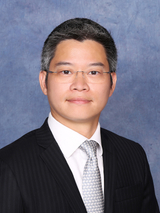A group of Chinese alternatives managers teamed up to launch an association designated to help small- and medium-sized onshore private fund managers tap international investors.
This April in Hong Kong, the group jointly founded the Chinese Overseas Private Funds Association (COPFA) with executives from OP Investment Management (OPIM), GROW Investment Group, and Singapore’s Solas Fiduciary Services as some of the key members.
“If we can help the best of the Chinese alternatives managers come offshore, then this would be a great representation on what talent China has to offer for managing regional assets,” said Alvin Fan, chief executive officer of OPIM, who is COPFA’s founding director.

Alvin Fan, OPIM
“The need became more urgent in the last couple of years,” Fan told AsianInvestor, referring to the worsening sentiment of international investors and their avoidance of allocating to China, or the “Anything But China” (“ABC”) mindset.
The association is designed to serve Chinese private fund managers — hedge funds, private equity, and venture capital funds — who want to expand in the offshore market or serve their offshore Chinese investors with their global strategies.
As of the end of March, there are 21,098 private fund managers in China, with a total of Rmb20.3 trillion yuan ($2.8 trillion) in assets under management.
OPIM is a hedge fund incubation platform based in Hong Kong. It is working with several quant managers to go offshore as Chinese regulators tighten scrutiny of the data-driven investors who are able to profit from market volatility in January.
Typically, in the hedge fund space, Fan noted that absolute return strategies such as arbitrage or relative value are popular with offshore investors.
However, with the capital flight that has been happening in China in the last few years amid the economic slowdown and regulatory headwinds, Fan said it has been increasingly challenging for Chinese managers to raise capital overseas. He also noted the spread of disinformation among foreign media when it came to the Chinese narrative.
CLOSING THE GAP
“The gap between truth and narrative is wider than ever. It’s so wide and so overwhelming in terms of the spread of disinformation that even among the smartest investors that historically have come to Asia and Hong Kong and Singapore, there’s been a planted seed of doubt that makes it very challenging for them. Forget about allocating — some of them are even worried about traveling to the region,” Fan said.
He thought this phenomenon to be more of a sentimental capital withdrawal than actual fundamental failures of the Chinese economy and financial market.
“The reality is that the economy is just maturing. It’s become harder to run money, but this is also the environment where the best managers float up to the top,” he said, noting that some Chinese hedge fund managers are still producing high double-digit annual returns in the long-only space.
He said institutional investors and multifamily offices from Canada, Europe, and the US he talked to in the last six months have demonstrated interest in getting ready for a Chinese market rebound and looking at absolute return strategies, for example.
The interest is also coming from the Middle East under the geopolitical tailwind.
“There’s a lot of friendliness and openness for investing in China from the Middle East. So, raising capital here is definitely something our managers and our members are looking into,” Fan said, who was on a business trip in Dubai.
He said a lot of private banks, sovereign investors, and other institutional investors want to increase investment in China, but don’t know how.
“They are hungry for more information,” Fan said.
Hence, the association aims to provide a unified and comprehensive knowledge-sharing and networking platform to support Chinese private fund managers to be more familiar with the offshore ecosystem in terms of professional service providers as well as investor demand.
CHANGING DEMANDS
Fan said there is a growing need for Chinese private fund managers to learn about the changing demands of global institutional investors, allocators, and multifamily offices, whose sophistication is growing in how they look at factors such as risk-adjusted returns, capital calls, and how diversified a fund is.
“This is symptomatic of a big information gap and an education process that we need to build when when they’re coming offshore,” Fan said.
“We need to help international investors with ammunition, facts, and data so that they can really make an educated choice about whether or not China really is un-investable, whether the ‘ABC’ trade should last this long,” he said.
The association has formed different working groups to organise networking events, produce research, and drive collaboration and communication around regulation, governance, policy, industry advocacy, and limited partners (LPs).
Fan noted that the feedback they got from regulators and governments in Hong Kong and Singapore was that they need to be able to provide a unified voice so that their needs could be better conveyed.
COPFA now has about 50 members across hedge funds, private equity, venture capital, law firms, and advisory services.
Other key members of the association’s executive committee include GROW Investment Group’s chief investment officer William Ma, AllBright Law Offices’s partner Carl Miao, former Springs Capital’s partner David Lau, and Solas Fiduciary Services’s Martin O’Regan.
¬ Haymarket Media Limited. All rights reserved.




